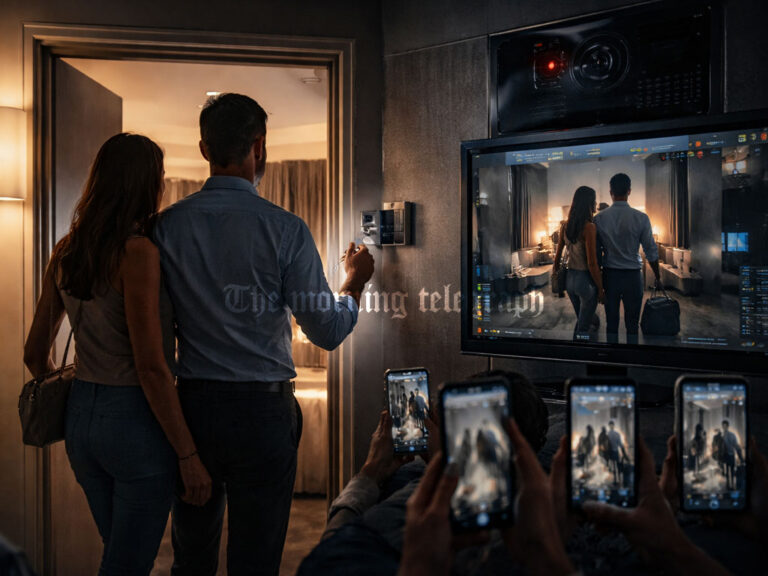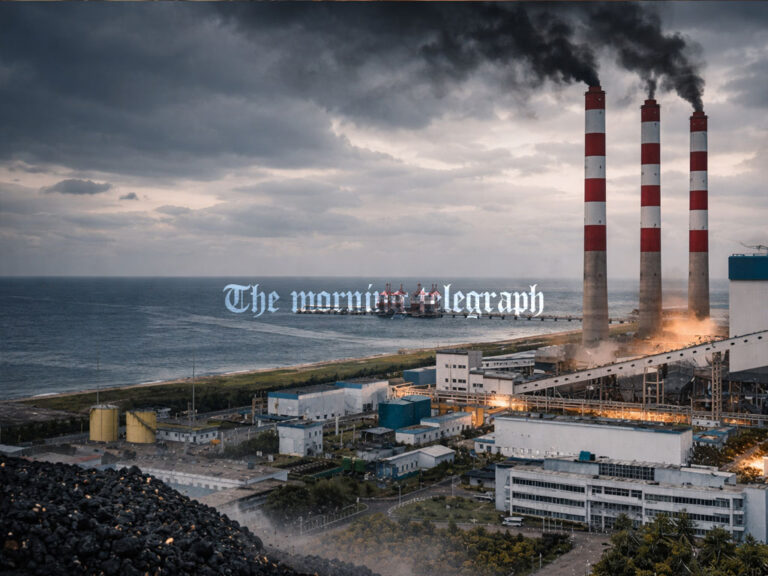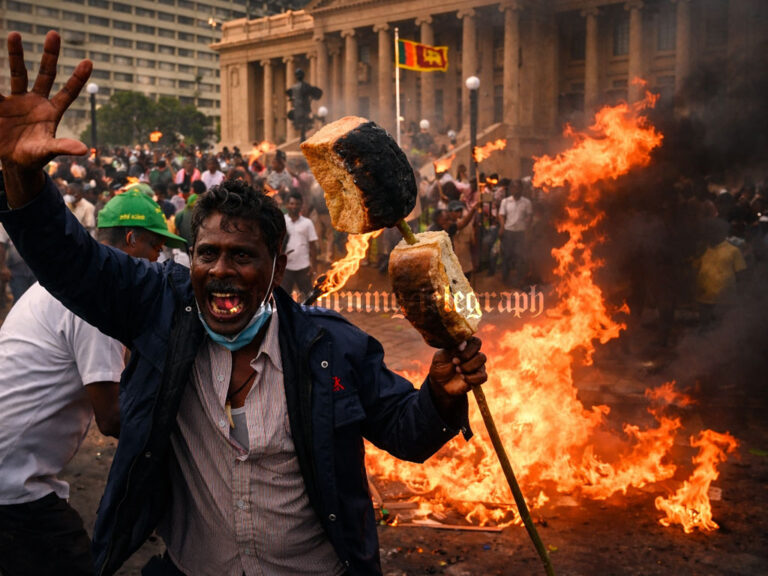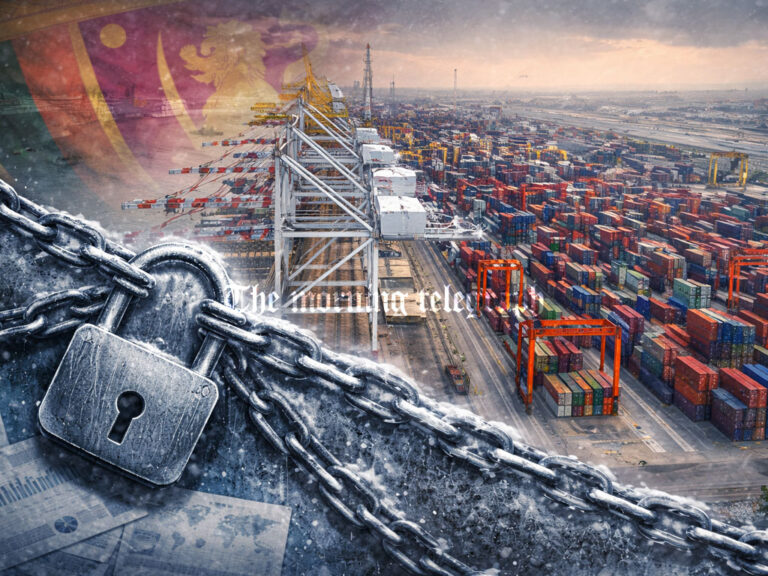
Anuradhapura, Sri Lanka – In an impassioned rally held in Anuradhapura, MP Patali Champika Ranawaka, leader of the United Republic Front, sounded a stern warning to voters about what he described as the Janatha Vimukthi Peramuna’s (JVP) hidden agenda, should they come to power. He accused the JVP of planning to dismantle Sri Lanka’s existing security apparatus, including the military and police forces, and replace them with a party-controlled militia called Janata.
The Alleged Militia Plan
Ranawaka claimed that under the leadership of Anura Kumara Dissanayake, the JVP intends to destabilize the country’s current security infrastructure. “They aim to weaken the military and police, replacing them with a force that answers only to them,” he alleged. According to Ranawaka, the Janata militia would operate under direct orders from the JVP leadership, posing a grave risk to national security. He argued that this move is designed to create a totalitarian state, controlled entirely by the JVP, with no checks and balances from independent security agencies.
“The people of Sri Lanka have always cherished their armed forces, who have safeguarded the nation through difficult times. The JVP’s vision would dismantle this protection, leaving the country vulnerable to both internal and external threats,” he added.
Secularism and Education Reforms
Ranawaka also raised alarms about the JVP’s alleged plans to secularize the state, which he said would include the removal of religious education from schools and the promotion of a strictly secular governance model. He emphasized that Sri Lanka’s cultural and religious heritage has always been a core part of its identity, and stripping religious values from the educational system would be detrimental.
“They want to create a secular state where religion has no place in governance or education. This is a direct attack on the heritage that binds our communities together,” Ranawaka claimed, adding that the party’s secular agenda could lead to the erosion of Buddhist and other religious teachings in the national curriculum.
Critique of Ranil Wickremesinghe’s Governance
Shifting focus to President Ranil Wickremesinghe, Ranawaka urged voters not to support a leader he described as having failed to address the country’s most pressing issues. According to him, Wickremesinghe has increased taxes to an unsustainable level, leading to a higher cost of living without corresponding improvements in the economic situation.
“Ranil Wickremesinghe eliminated the queues for essential goods, but at the cost of placing an unbearable tax burden on the people. Fuel, electricity, food, and medicine are all becoming increasingly unaffordable for the average citizen,” Ranawaka said. He highlighted the public’s frustration with the government’s inability to reduce living costs despite implementing high tax rates on essential items.
Ranawaka argued that Wickremesinghe’s political standing is weak, predicting that he would not be a serious contender in the upcoming election. “A vote for Wickremesinghe is a wasted vote,” Ranawaka declared, adding that a third or fourth-place finish for the incumbent president is likely.
Support for Sajith Premadasa: A Candidate for Change
Ranawaka then strongly endorsed Sajith Premadasa, leader of the Samagi Jana Balawegaya (SJB), as the only candidate with a credible plan to alleviate the country’s financial woes. He touted Premadasa’s track record of reducing fuel prices and promised similar economic relief under his leadership.
“Sajith Premadasa is the only candidate who can lead this country out of its current economic crisis,” Ranawaka emphasized. “He will reduce taxes, lower the cost of living, and ensure that all Sri Lankans have access to essential services like affordable electricity and healthcare.”
Ranawaka highlighted Premadasa’s proposals to uplift the middle class by offering economic relief, promoting investments, and improving living standards. He contrasted this with both Wickremesinghe’s failure to reduce taxes and Dissanayake’s radical ideas that, he argued, would harm Sri Lanka’s economic and social fabric.
Rallying for Generational Change
Positioning the 2024 presidential election as a pivotal moment, Ranawaka urged voters to choose wisely for the sake of future generations. “This election is not just about the next five years,” he said, “It’s about shaping the future of an entire generation.” He reiterated that a vote for Premadasa would be a vote for stability, unity, and economic progress.
Retiring the Rajapaksa Legacy
Ranawaka also took the opportunity to call for an end to the Rajapaksa family’s political dominance. He referenced the Supreme Court’s findings which held former President Mahinda Rajapaksa accountable for many of the country’s current economic problems. Ranawaka urged voters not to support Namal Rajapaksa, Mahinda’s son, who is seen as the next in line to carry on the family’s political dynasty.
“The Rajapaksas have brought this country to the brink of ruin. We cannot allow them to continue to hold power, and we certainly cannot allow Namal to follow in his father’s footsteps,” Ranawaka stressed. He made it clear that the United Republic Front and its allies were committed to permanently ending the Rajapaksa era.
A Final Call to Voters
Ranawaka concluded his speech by making a passionate appeal to SLPP supporters to shift their loyalty to Sajith Premadasa. He warned that a vote for Wickremesinghe or Dissanayake would result in further instability, increased taxes, and deeper economic struggles for the average citizen.
“With one vote, we can bring an end to the Rajapaksa dynasty, defeat Ranil Wickremesinghe, and stop the rise of the JVP’s red mafia,” he declared.
The crowd responded with loud cheers as Ranawaka wrapped up his address, reinforcing the high stakes of the upcoming election. The 2024 presidential race is shaping up to be a contest between political continuity and radical change, with voters being urged to carefully consider the long-term implications of their choice.




